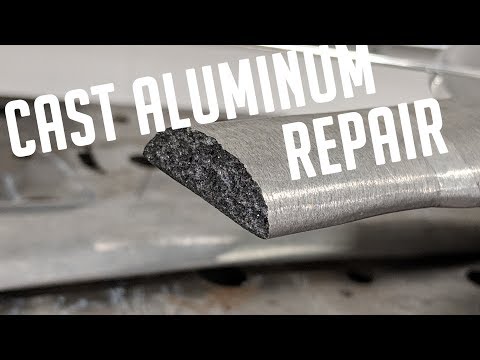Facts About Alcast Company Revealed
Our Alcast Company Statements
Table of ContentsTop Guidelines Of Alcast CompanyThe Greatest Guide To Alcast CompanyNot known Facts About Alcast CompanyAlcast Company for BeginnersLittle Known Questions About Alcast Company.Not known Incorrect Statements About Alcast Company
Chemical Contrast of Cast Aluminum Alloys Silicon advertises castability by lowering the alloy's melting temperature level and boosting fluidness throughout casting. Furthermore, silicon contributes to the alloy's stamina and use resistance, making it important in applications where resilience is important, such as vehicle components and engine elements.It also boosts the machinability of the alloy, making it easier to refine right into ended up items. In this way, iron contributes to the overall workability of light weight aluminum alloys.
Manganese adds to the toughness of light weight aluminum alloys and enhances workability (aluminum casting manufacturer). It is typically used in functioned light weight aluminum products like sheets, extrusions, and accounts. The existence of manganese aids in the alloy's formability and resistance to splitting during fabrication procedures. Magnesium is a lightweight component that supplies strength and influence resistance to aluminum alloys.
The Facts About Alcast Company Uncovered
It enables the manufacturing of light-weight components with exceptional mechanical properties. Zinc improves the castability of light weight aluminum alloys and aids control the solidification procedure during casting. It enhances the alloy's toughness and hardness. It is typically located in applications where elaborate forms and great details are needed, such as ornamental castings and specific vehicle parts.

The main thermal conductivity, tensile toughness, return toughness, and prolongation vary. Amongst the above alloys, A356 has the highest possible thermal conductivity, and A380 and ADC12 have the lowest.
The Buzz on Alcast Company

In precision spreading, 6063 is well-suited for applications where complex geometries and top quality surface area finishes are vital. Examples include telecommunication enclosures, where the alloy's premium formability permits smooth and visually pleasing designs while maintaining architectural honesty. In the Lighting Solutions industry, precision-cast 6063 elements produce sophisticated and reliable lights fixtures that require elaborate forms and excellent thermal efficiency.
It leads to a finer surface area coating and far better deterioration resistance in A360. The A360 exhibits exceptional elongation, making it optimal for complicated and thin-walled elements. In precision casting applications, A360 is appropriate for markets such as Consumer Electronics, Telecommunication, and Power Tools. Its enhanced fluidity permits elaborate, high-precision components like smartphone casings and communication device housings.
Alcast Company Fundamentals Explained
Its one-of-a-kind residential or commercial properties make A360 a beneficial choice for accuracy spreading in these industries, improving item sturdiness and top quality. Light weight aluminum alloy 380, or A380, is a widely utilized spreading alloy with several unique features. It provides exceptional castability, making it an ideal option for accuracy spreading. A380 exhibits good fluidity when molten, making certain elaborate and in-depth mold and mildews are properly reproduced.
In accuracy spreading, light weight aluminum 413 radiates in the Consumer Electronics and Power Tools industries. It's typically utilized to craft elaborate elements like smartphone housings, camera bodies, and power device coverings. Its accuracy is impressive, with limited tolerances up to 0.01 mm, guaranteeing flawless item setting up. This alloy's remarkable corrosion resistance makes it a superb selection for exterior applications, making certain durable, long lasting products in the mentioned sectors.
Alcast Company Things To Know Before You Buy
As soon as you have made a decision that the aluminum die casting process appropriates for your job, an important following action is making a decision on one of the most proper alloy. The light weight aluminum alloy you select will considerably affect both the spreading process and the homes of the final item. Due to this, you need to make your choice very carefully and take an educated approach.
Determining one of the most appropriate aluminum alloy for your application will certainly suggest weighing a wide array of attributes. These relative alloy qualities follow the North American Die Casting Association's guidelines, and we've split them into 2 classifications. The first group addresses alloy attributes that influence the production procedure. The 2nd covers attributes affecting the properties of the end product.
The 8-Minute Rule for Alcast Company
The alloy you pick for die spreading straight affects a number of aspects of the casting process, like exactly how easy the alloy is to function with and if it is prone to casting problems. Hot cracking, additionally understood as solidification breaking, my company is a normal die spreading flaw for aluminum alloys that can cause internal or surface-level tears or splits.
Particular aluminum alloys are more prone to hot fracturing than others, and your selection needs to consider this. It can harm both the actors and the die, so you should look for alloys with high anti-soldering homes.
Corrosion resistance, which is currently a noteworthy quality of light weight aluminum, can differ substantially from alloy to alloy and is an important characteristic to take into consideration depending on the environmental conditions your item will be exposed to (Aluminum Castings). Use resistance is one more home typically looked for in light weight aluminum items and can set apart some alloys